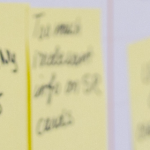Experiential learning, where students complete assignments for real organizations, have long been a core part of the LL.M. curriculum. But in recent years law schools have placed greater emphasis on projects that help students solve environmental and social challenges around the globe.
Most law schools run legal clinics that operate as a public interest law firm, providing challenging opportunities for students to deepen their legal knowledge, strengthen their practical skills, and build their professional networks.
But as well as enhancing their own professional skills, legal clinics give LL.M. students the chance to make a social impact and provide free legal assistance to at-risk populations — whether they are representing a special-needs child to access the right education, working with a non-profit to provide affordable housing, or advocating for a wrongly-convicted person.
Pro bono opportunities to make a social difference
Duke University School of Law in North Carolina has 12 legal clinics that are open to international LL.M. candidates as well as J.D. students. It can be hard to find the time to participate in legal clinics because of the substantial workload that LL.M. candidates already have to fit into a compressed one-year program. So, Duke Law also offers many shorter-term pro bono opportunities for international LL.M. students, many of whom took part in a series of pop-up expunction clinics this fall.
There are enormous benefits to participating in these projects. “They address critical legal issues for needy clients and communities, and they do it under the supervision and mentoring of superb clinicians with extensive practice experience in their area of the law. By working directly with people to use the law to solve their problems, students not only develop their interpersonal and lawyering skills but build their confidence and hone their professional judgment,” Oleg Kobelev, the Associate Dean of International Studies at Duke Law.
“They build empathy and compassion for those who have had fewer opportunities in life and see firsthand the impact of inequality and the role that lawyers can play in helping to secure justice,” he adds. “This helps to instill a lifelong commitment to service and leadership, which many alumni continue throughout their careers through pro bono work and community service.”
There are several opportunities for Duke Law’s LL.M. students to get involved in legal clinics that focus on social or environmental issues. For instance, in the Environmental Law and Policy Clinic, student-attorneys have worked on community-level proposals to reduce the use of plastic shopping bags that release toxic microplastics into the air and waterways.
There’s also the Health Justice Clinic, where LL.M. candidates assist low-income clients with HIV and cancer in legal matters including access to social security and private disability benefits, end-of-life documents such as wills, powers-of-attorney, and claims relating to insurance, privacy, and discrimination.
“The clinical program is a centerpiece of the Law School’s commitment to public service, particularly to those who are marginalized and stigmatized,” says Kobelev. “All Duke Law clinics serve clients who would otherwise not have access to legal counsel due to cost.”
Putting the theory into practice
Georgetown Law in Washington D.C. has 19 distinct clinics, which each provide students with the opportunity to learn the practical art of lawyering while providing legal representation to under-represented individuals and organizations. More than 300 students participate in a clinic annually, including some LL.M. candidates.
"Our clinics are designed primarily for our J.D. students, but every year several LL.M. students play important roles as clinic fellows, using expertise they already have while further developing their skills and experience," says Patrick Griffith, Assistant Dean for Clinical Programs.
All of those clinics focus on social issues in one way or another. “The organizing principle of all our clinics is the social justice mission. It really goes back to the 1970s when young lawyers and professors were trying to fill a gap in representation. What faculty quickly learnt was there was a robust learning opportunity for students to put the theory, the law, into practice. And being able to reflect on that,” he explains.
Among the 19 clinics at Georgetown Law is the Domestic Violence Clinic, where students represent the victims of intimate abuse in civil protection order cases in the D.C. Superior Court. Through these projects, the candidates learn to engage in client-centered advocacy, develop strong trial and negotiation skills, obtain a thorough understanding of family, criminal, and poverty law, and provide representation in an area of substantial community need.
“For most students it’s the capstone experience; they learn the theory and start to apply it. They are real cases with real consequences — that is a different kind of experience to what you get in the classroom,” says Griffith.
The key challenge for LL.M. candidates is time management. “Student-attorneys in our clinics tend to become very passionate about the work they do, and highly invested in the outcome. For that reason, clinic participation may become the focal point of their semester, so time management may be a challenge for some,” says Duke Law’s Kobelev.
Also, cases don’t always work out the way they hope. “Motions can be unsuccessful, appeals lost, and cases dismissed – often for reasons unrelated to the quality of their work,” Kobelev says. “With the support of clinic instructors, students learn to cope with the inevitable disappointments of legal practice. Perhaps most important, clinic participants learn to ever, never, never give up.”










